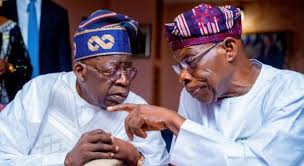
The World Bank has stated that Nigeria’s fiscal and monetary policy reforms executed between 2003 and 2007 are exactly what is needed today to create and sustain economic growth.
Vice President of the World Bank Group, Indermit Gill stated this during his remark at the 30th anniversary of the Nigeria Economic Summit organised by the NESG.
According to him, during the period Nigeria managed its oil wealth well by adopting an oil price fiscal rule, renovated its Paris debt and allowing market forces determine the exchange rate.
He noted these policies resulted in significant inflow of Foreign Direct Investment (FDIs) leading to increase in foreign reserve and economic growth.
In his words, “let me give you an example of a country that has managed its oil wealth well. This country had oil price fiscal rule that not only insulated the non-oil traded goods sector against oil price volatility but also helped to build a cushion of foreign exchange reserve.”
“It managed its oil wealth with an eye to the future to helping not just the current generation but also future ones. I’m sure all of you here are think he’s talking about Norway- actually I’m referring to Nigeria between the years 2003 and 2007.”
“During those four years, Nigeria implemented fiscal and exchange rate reforms, it introduced unprecedented transparency into the recording and allocation of oil revenues. It renegotiated its Paris Club debt which had created an overhang that was choking the economy and the payoff was immense and immediate. For the first time in history, Nigeria nudged a BB- sovereign credit rating, it started to attract FDI and everyone started to talk of Africa rising.”
“So I’m going to say something unpopular perhaps, but Nigeria’s reforms from 2003 and 2007 were exactly what was needed.”
Furthermore, Mr. Gill called on policy makers to sustain the ongoing reforms for at least ten years and the Economic payoffs will reflect across not Nigeria but Africa.
Also, he noted that policy makers must do three things in Nigeria to sustain ongoing reforms. These include; the prioritisation of non-oil growth, help vulnerable households cope with high inflation by increasing the temporary cash transfer program to 10 million households and finally make the economy more business ready.
He commended the Governor of the CBN, Yemi Cardoso for sustaining the monetary policy tightening efforts and the reforms in the foreign exchange market and noted that the Naira today is at its most competitive in the last 20years.
PRESS STATEMENT Nigerian Breweries PLC - The pioneer and largest brewing company in Nigeria which is…
Paris Saint-Germain star Achraf Hakimi has spoken out following his defeat by Ademola Lookman for…
Ukrainian boxer Oleksandr Usyk reinforced his position as one of the greatest heavyweight champions in…
The National Emergency Management Agency (NEMA) has said it has put all its zonal, territorial…
Erhiatake Ibori-Suenu, member representing Ethiope Federal Constituency of Delta State in the House of Representatives…
The Economic and Financial Crimes Commission (EFCC) has reportedly secured a final forfeiture order for…